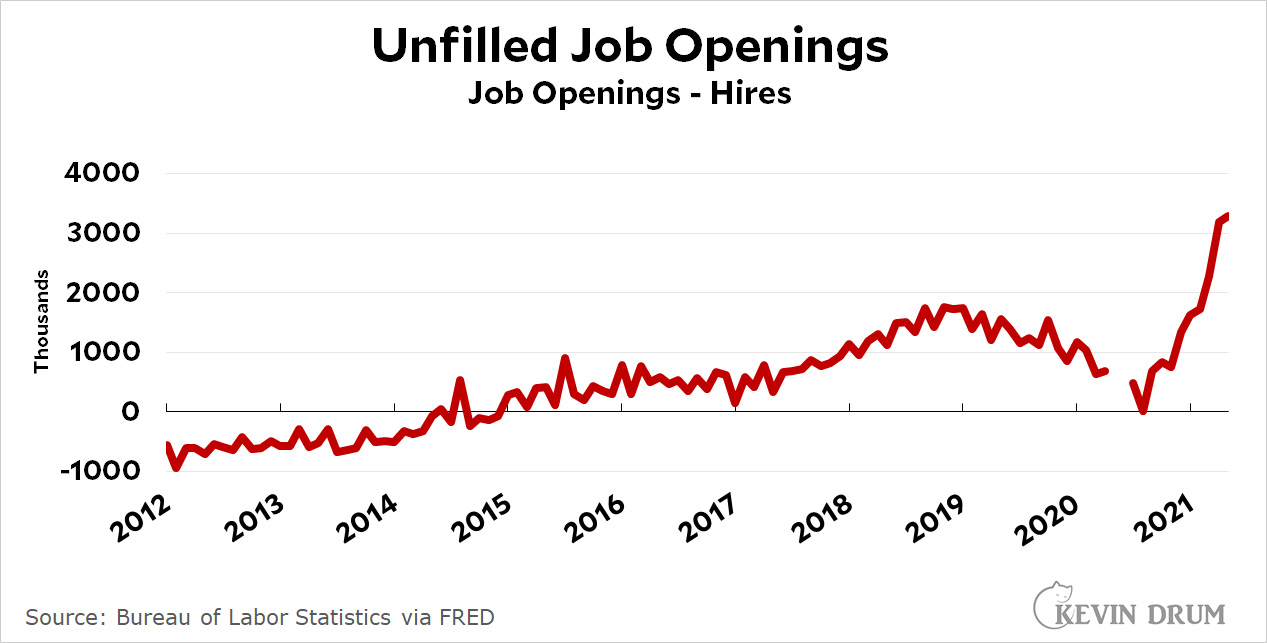Climate scientists say that our recent heat wave was almost certainly a result of global warming:
Temperatures were so extreme — including readings of 116 degrees Fahrenheit in Portland, Ore., and a Canadian record of 121 in British Columbia — that the researchers had difficulty saying just how rare the heat wave was. But they estimated that in any given year there was only a 0.1 percent chance of such an intense heat wave occurring.
“Although it was a rare event, it would have been virtually impossible without climate change,” said Geert Jan van Oldenborgh of the Royal Netherlands Meteorological Institute, who conducted the study with 26 other scientists, part of a collaborative group called World Weather Attribution.
Climate change is a lot like loading the dice in a game of chance. If you throw a die 60 times, you'd expect each number to come up about ten times. But what if you got this result instead?

This result isn't impossible. But it's so unlikely that anybody with a lick of common sense would demand a fresh set of dice.
This is what climate change does. It loads the weather dice to make extreme events not just possible, but common. We need a fresh set of dice if we want to avoid a future of extreme weather events that leave thousands of dead bodies in their wake.








